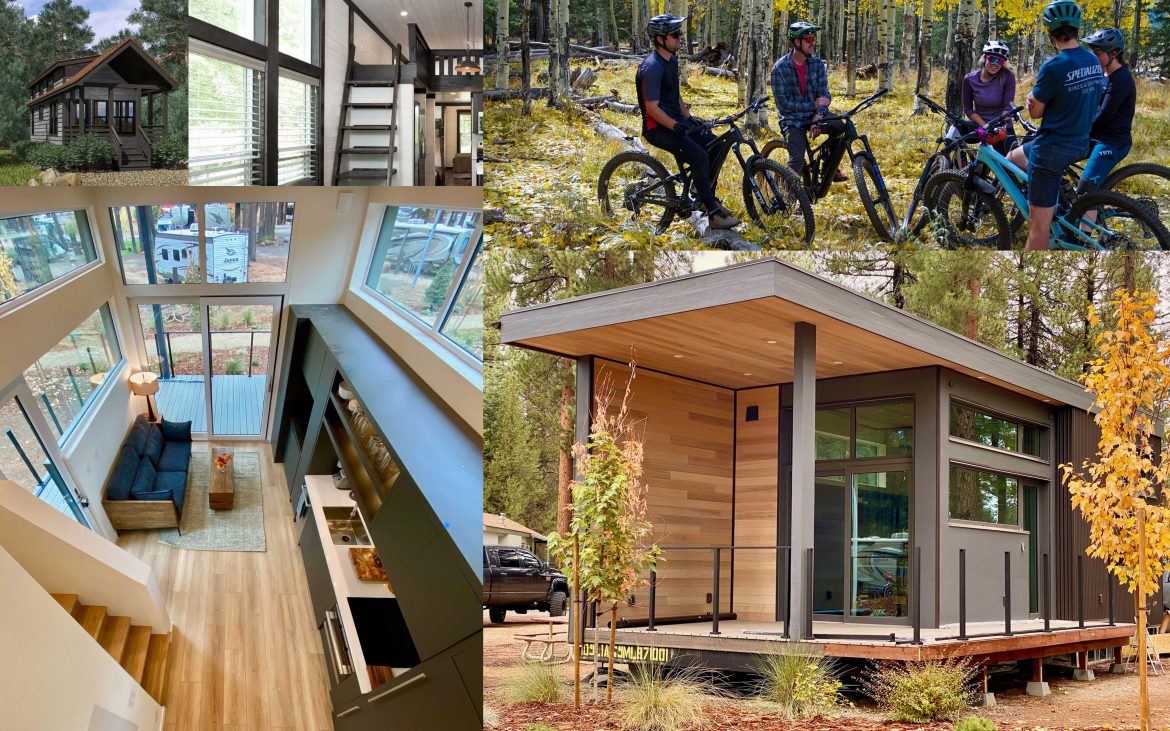Has this scenario ever happened to you before?
You visit a hotel’s website late at night, eager to book a getaway after a long week. You’re met with a clunky booking process, unclear pricing, and no real-time confirmation. Frustrated, you leave and book elsewhere. Now flip the script—what if this website had a sleek, user-friendly booking engine that made reservations effortless, displayed all room options, and provided instant confirmation? Then you would’ve completed the booking process and went to bed happy. That’s where a hotel booking engine comes into play.
A hotel booking engine is more than a reservation tool—it’s a gateway to improved guest satisfaction, higher revenue, and greater control over your property’s operations. By facilitating direct online bookings through your website or social media channels, a booking engine bypasses the need for third-party OTAs (Online Travel Agencies), reducing commission fees and giving you more control over your revenue. Whether you’re managing a boutique hotel, a campground, or a sprawling resort, integrating the right booking engine can transform your business. This guide explores what hotel booking engine software is, its essential features, and how it can elevate your property’s performance.
What Is a Hotel Booking Engine?
A hotel booking engine is a digital tool integrated into a hotel’s website or social media platforms, allowing guests to make direct online reservations. It streamlines the booking process, making it a vital component of a property’s digital strategy.
The online booking engine acts as the direct link between a hotel and its potential guests, bypassing the need for third-party platforms. Here’s how it works:
- Guests visit the hotel’s website, browse room types, and check availability through the integrated booking engine.
- They input their details, choose a room, and proceed with secure payment options.
- Once the reservation is completed, both the guest and the hotel receive instant confirmation, while inventory is automatically updated to reflect the booking.
By offering a seamless and user-friendly experience, booking engines encourage direct bookings, reducing reliance on third-party platforms and saving on commission fees.
That’s not to say that listing with OTAs like booking.com, Expedia, hotels.com, and more is not worth your time if you have an online booking engine. Think of these entities like advertising platforms for your hotel; if someone does end up booking with one of them the first time they hear of your hotel and has a great experience staying with you, chances are high that they will book with you directly next time. In addition, a guest might discover you initially on an OTA that you list with, and then book with you directly later on because they remember you. This concept is called the Billboard Effect.
In any case, having a robust and easy-to-use hotel booking engine implemented on your website is extremely important to capture those guests that want to book directly with you, and not chase them away with a clunky interface or unreliable booking process.
Some basic features that make an online hotel booking engine a no-brainer choice to implement on your website include:
| Booking Engine Feature | Description |
| Real-Time Availability | Displaying room availability and pricing to potential guests. |
| Secure Transactions | Allowing guests to securely book rooms and process payments. |
| Customizable Interfaces | Offering flexibility to match the hotel’s branding and specific booking requirements. |
| Instant Confirmation | Providing immediate booking confirmation to guests and updating the hotel’s reservation system simultaneously. |
Key Benefits of Using a Hotel Booking Engine
An online hotel booking engine is more than just a tool for online reservations—it’s a strategic asset that can drive revenue, enhance guest experiences, and streamline operations. Below is an in-depth look at the key benefits of integrating a booking engine into your property’s operations.
1. Increased Revenue
- Lower OTA Dependency:
Online Travel Agencies (OTAs) charge commissions ranging from 15% to 30%, which can significantly profitability. A booking engine reduces reliance on OTAs by encouraging direct reservations, allowing hotels to retain more of their earnings. - Maximized Profit Margins:
Each direct booking through your hotel’s website bypasses third-party fees, ensuring a higher percentage of revenue is kept in-house. Over time, this can add up to substantial savings. - Upselling Opportunities:
Booking engines often feature built-in tools for upselling. Hotels can promote premium room categories, packages, or add-ons like breakfast, spa services, or late checkouts, increasing the average spend per guest. - Dynamic Pricing Integration:
Many booking engines, Newbook included, allow real-time rate adjustments based on demand, occupancy, and market trends, ensuring you’re always optimizing revenue without manual intervention. With Newbook, you simply set the minimum and maximum price range you want, and then let the software utilize historical data to set the right price at the right time.
Your all-in-one, online booking system
Newbook is your all in one online booking system. Talk to us today to learn how you can improve operations and increase booking for your business.


2. Better Guest Experience
- User-Friendly Interface:
A seamless booking process, like the one offered by Newbook, makes it easy for guests to search, select, and book rooms. Add-ons and upgrades can also be incorporated into the booking process with Newbook, offering guests the chance to improve their vacation experience organically. Features like real-time availability and transparent pricing provide clarity and build trust with potential customers. - 24/7 Accessibility:
Unlike traditional booking methods, a booking engine operates around the clock. Guests can make reservations anytime, accommodating international travelers in different time zones or those booking late at night. - Multi-Device Compatibility:
Modern booking engines are designed to work flawlessly across desktops, tablets, and mobile devices. This ensures a consistent experience for all users, catering to the growing number of mobile-first travelers. - Personalized Booking Experience:
Advanced booking engines allow guests to tailor their stay by selecting specific preferences, such as bed types, room views, or package deals. This personal touch enhances satisfaction and sets your property apart. - Instant Confirmation:
Guests receive immediate confirmation after completing their booking, which provides peace of mind and reduces follow-up queries for your staff.
3. Enhanced Control for Hoteliers
- Customizable Features:
Tailor your booking engine to match your property’s branding, including colours, fonts, and layout. This creates a seamless transition for users navigating between your website and the booking system, enhancing credibility. - Promotions and Discounts:
Easily set up and advertise limited-time offers, early-bird discounts, or special packages directly on your booking engine. This flexibility helps you remain competitive and incentivize bookings during low-demand periods. - Data Ownership:
Unlike OTAs, which control customer data, booking engines give you direct access to valuable guest information. Use this data to refine marketing strategies, create targeted offers, and build lasting relationships through loyalty programs. - Policy Management:
Booking engines allow you to clearly communicate policies like cancellation terms, check-in procedures, or deposit requirements, reducing misunderstandings and disputes.
4. Improved Operational Efficiency
- Seamless Inventory Management:
Booking engines integrate directly with Property Management Systems (PMS), ensuring real-time updates to room availability. This eliminates the risk of double bookings or inventory mismatches. - Automation:
Automated booking confirmations, payment processing, and post-stay surveys reduce the workload on your staff, allowing them to focus on enhancing the guest experience. - Simplified Communication:
A centralized platform consolidates all reservation-related communication, making it easy to manage inquiries, changes, or special requests. - Streamlined Turnover Management:
By syncing with housekeeping schedules, booking engines help staff prioritize room preparation based on guest arrival times, ensuring smooth turnovers.
5. Increased Marketing and Brand Visibility
- SEO and Digital Campaigns:
Integrating a booking engine with your website improves your SEO rankings, attracting more organic traffic. Combine this with pay-per-click (PPC) advertising to drive direct bookings. - Social Media Integration:
Modern booking engines integrate with platforms like Facebook and Instagram, allowing guests to book directly from your social media profiles. This feature is particularly effective for properties targeting tech-savvy or millennial travelers. - Email Marketing Campaigns:
Use guest data collected through the booking engine to design personalized email campaigns. Share exclusive discounts, loyalty rewards, or early-bird deals to encourage repeat bookings.
6. Comprehensive Reporting and Analytics
- Performance Insights:
Analyze booking trends, revenue performance, and guest demographics through in-depth reports generated by the booking engine. - Conversion Tracking:
Track how website visitors interact with your booking engine, identifying bottlenecks or areas for improvement to maximize conversions. - Competitor Analysis:
Some booking engines offer market comparison tools, allowing you to adjust your rates dynamically to remain competitive in your local market.
7. Reduced Administrative Burden
- Guest Self-Service Options:
Guests can modify or cancel their reservations directly through the booking engine without contacting your staff, saving time and reducing manual errors. - Automated Messaging:
Pre-configured emails keep guests informed at every stage of their booking journey, from confirmation to pre-arrival reminders. - Payment Processing:
Secure, automated payment gateways streamline transactions and reduce the risk of errors or delays.
eBook: 5 Powerful Ways to Use Automated SMS
“We made an additional $7000 in one month by using SMS Late Check-Outs.” Find out how you can too!


Essential Features of the Best Hotel Booking Engine

The best hotel booking engines combine functionality, flexibility, and seamless integration to elevate your property’s online booking experience. From mobile optimization to dynamic pricing and multilingual support, these features ensure your booking engine caters to modern travelers while maximizing efficiency and revenue.
Here are the essential features to look for when choosing the best booking engine for your property:
1. Mobile Optimization
- Seamless Experience Across Devices:
With a growing number of travelers booking accommodations on their smartphones and tablets, mobile optimization is no longer optional. A booking engine must provide a flawless experience, whether guests are using desktops, tablets, or mobile phones. - User-Friendly Interface:
Features like simple navigation, clear call-to-action buttons, and responsive design ensure users can complete bookings quickly and easily, no matter the screen size. - Mobile Payments:
Support for mobile-friendly payment gateways allows guests to finalize bookings securely from their smartphones without interruptions.
2. Integration
- Property Management System (PMS) Integration:
A good booking engine integrates seamlessly with your PMS, ensuring real-time updates to room inventory, availability, and guest information. This eliminates double bookings and reduces manual entry errors. - Channel Manager Compatibility:
For properties listed on multiple platforms, integration with a channel manager ensures consistent pricing and inventory synchronization across OTAs, global distribution systems (GDS), and your direct booking platform. - Additional Systems Integration:
Integration with hotel revenue management software (RMS), accounting systems, and marketing tools enhances operational efficiency and provides valuable insights into performance and profitability.
3. Dynamic Pricing Tools
- Automated Rate Adjustments:
Dynamic pricing tools enable your booking engine to adjust room rates automatically based on factors such as demand, occupancy levels, and competitor pricing. - Maximizing Revenue:
These tools ensure you capitalize on high-demand periods by increasing rates while remaining competitive during low-demand periods with attractive discounts. - Custom Pricing Rules:
Set parameters for minimum and maximum rates, seasonal pricing, or promotional offers to maintain control while optimizing revenue potential.
4. Customizable Widgets
- Brand Consistency:
A customizable booking widget allows you to tailor the booking engine’s appearance to match your website’s branding, including colors, fonts, and layout. - Streamlined User Journey:
Ensure the booking process feels like a natural extension of your website, reducing friction and increasing conversion rates. - Flexible Placement:
Place booking widgets strategically on your website, such as on the homepage, room detail pages, or special offer pages, to encourage reservations. - Upselling Opportunities:
Customizable widgets can also highlight promotions, add-ons, or room upgrades, boosting revenue per booking.
5. Multilingual and Multi-Currency Support
- Appealing to Global Audiences:
A booking engine that supports multiple languages and currencies ensures international travelers can navigate and book with ease. - Localized Experiences:
Allow guests to view prices in their preferred currency and complete transactions without confusion about exchange rates or hidden fees. - Increased Conversions:
Breaking language and currency barriers fosters trust and convenience, encouraging more users to complete bookings directly on your site. - Cultural Adaptability:
Customize confirmation emails and follow-ups in the guest’s chosen language, enhancing the overall experience and building loyalty.
How to Choose the Right Booking Engine for Hotels (and Campgrounds)

Selecting the ideal booking engine for your hotel or campground is a critical decision that impacts operations, guest satisfaction, and revenue generation. The right choice will depend on factors like cost, scalability, ease of use, and customer support. Below is a detailed guide to help you make the best decision for your property.
1. Cost
Cost is one of the primary considerations when choosing a booking engine. Evaluate the initial costs, including setup fees and any required customizations. It’s also important to consider recurring expenses, which might include subscription fees or commission-based charges. Some booking engines may offer low entry costs but charge extra for integrations or upgrades, so be cautious of hidden fees. Ultimately, weigh the long-term return on investment by factoring in savings from reduced OTA commissions and increased revenue from direct bookings.
2. Ease of Use
The usability of a hotel booking engine directly impacts both your team’s efficiency and the guest experience. A user-friendly system with intuitive navigation ensures smooth operations and fewer errors during the booking process. Guests will appreciate straightforward features like real-time availability, secure payment options, and instant confirmation. Properties with high staff turnover or seasonal workers should prioritize systems that require minimal training. Testing demo versions or trial periods can help assess how easy the system is to adopt.
3. Scalability
Scalability is crucial for properties planning to grow. Whether you’re adding more rooms, expanding RV sites, or managing multiple locations, the booking engine must accommodate increased complexity without compromising performance. The ability to integrate with new tools or functionalities is another vital feature for ensuring that the system evolves alongside your property’s needs. Multi-property management capabilities can be especially beneficial for chains or businesses managing diverse sites.
4. Customer Support
Customer support is another vital factor in choosing a booking engine. Reliable support should be available through multiple channels, such as live chat, email, or phone, especially during peak travel seasons when downtime can lead to significant revenue loss. Onboarding assistance, including training materials and tutorials, ensures your team can fully utilize the system. Quick issue resolution is essential for avoiding disruptions and maintaining smooth operations.
5. Evaluating Free vs. Paid Options
When deciding between free and paid booking engines, consider their features, limitations, and growth potential. The comparison table below highlights the key differences between the two options:
| Feature | Free Booking Engine | Paid Booking Engine |
| Cost | No upfront cost, suitable for small businesses. | Subscription or commission-based fees; scalable for larger operations. |
| Functionality | Basic features like availability and bookings. | Advanced features such as dynamic pricing, upselling, and integrations. |
| Customization | Limited customization; generic appearance. | Tailored branding and adaptable widgets for seamless integration. |
| Integrations | Minimal or no compatibility with PMS or channel managers. | Full integration with PMS, RMS, and marketing tools. |
| Reporting | Basic reporting tools with limited insights. | Robust analytics for tracking trends, revenue, and guest behavior. |
| Customer Support | Limited to online forums or email. | Dedicated customer support with training and real-time assistance. |
| Scalability | Best for small or single-location properties. | Ideal for growing properties or multi-location management. |
| Long-Term ROI | Low initial cost but limited growth potential. | Higher upfront cost but significant long-term revenue benefits. |
While free booking engines may seem appealing for smaller properties or those with limited budgets, paid solutions provide the advanced features and support necessary for growth and operational efficiency.
Overcoming Common Challenges with Hotel Booking Engines
Implementing a hotel booking engine can transform how your property handles reservations, but it’s not without its challenges. Concerns about setup costs, technical knowledge, OTA dependency, and data security are common. Here’s how to address these issues effectively to ensure a seamless transition and ongoing success:
Addressing Setup Costs and Technical Know-How
For many properties, the perceived expense and technical complexity of implementing a booking engine can be a barrier. However, these concerns can be mitigated with the right strategies:
- Budget Planning and ROI Analysis: While the initial cost of setup might seem high, it’s important to consider the long-term savings from reduced OTA commissions and increased direct bookings. Many providers offer flexible payment models, such as monthly subscriptions or commission-based fees, to accommodate different budgets. A clear analysis of the expected return on investment (ROI) can help justify the upfront cost.
- User-Friendly Platforms: Modern booking engines are designed with usability in mind. Many solutions include drag-and-drop interfaces, intuitive dashboards, and pre-configured settings to simplify setup. For properties with limited technical expertise, providers often offer step-by-step onboarding and comprehensive training resources.
- Provider Support: Choose a provider that offers setup assistance, live customer support, and troubleshooting. Many vendors provide free trials or demos, allowing you to test the system before committing.
Managing OTA Dependency and Encouraging Direct Bookings
While OTAs (Online Travel Agencies) are invaluable for driving visibility, over-reliance on them can erode your profit margins due to high commission fees. A balanced approach is key:
- Enhance Your Direct Booking Incentives: Use your booking engine to offer exclusive perks for direct bookings, such as discounted rates, complimentary services, or flexible cancellation policies. These incentives make your website more appealing than third-party platforms.
- Optimize Your Website: An engaging, user-friendly website integrated with your booking engine encourages visitors to book directly. Use compelling visuals, clear navigation, and prominent “Book Now” buttons to simplify the process.
- Invest in Digital Marketing: Leverage SEO, PPC advertising, and social media campaigns to attract more visitors to your direct booking platform. Retargeting ads can also help re-engage users who visited your site but didn’t complete a booking.
- Communicate Your Value: Highlight the benefits of booking directly in your marketing materials and on your website. For example, emphasize cost savings, exclusive packages, or the personalized service you provide.
Ensuring Data Security and Compliance with Payment Processing Regulations
With online transactions becoming the norm, data security and compliance are non-negotiable for building guest trust and protecting sensitive information.
- PCI Compliance: Ensure your booking engine complies with Payment Card Industry Data Security Standards (PCI DSS). These regulations protect cardholder data during and after transactions.
- Secure Payment Gateways: Choose a booking engine that integrates with secure payment gateways, offering encryption and fraud detection to safeguard transactions.
- Guest Data Protection: Ensure your system adheres to data protection laws, such as GDPR for European guests or CCPA for California-based travelers. Clearly communicate your privacy policy to guests to build trust.
- Regular Security Updates: Keep your booking engine up to date with the latest security patches and features. Work with a provider that prioritizes ongoing development to address emerging threats.
Conclusion
A hotel booking engine is no longer a luxury—it’s a necessity for properties aiming to thrive in an online hospitality landscape. By streamlining the booking process, reducing reliance on OTAs, and delivering exceptional guest experiences, a booking engine becomes a cornerstone of your business strategy. From dynamic pricing tools to multilingual support, the right booking engine ensures your property stays competitive and responsive to guest needs.
As you consider implementing a booking engine, focus on key factors like cost, scalability, and integration with your existing systems. Overcoming challenges such as setup costs or OTA dependency is achievable with thoughtful planning and the right provider. Ultimately, investing in a robust booking engine isn’t just about reservations—it’s about building trust, driving growth, and setting your property apart in a crowded market. With the right tools, your guests’ booking journey can be as seamless as their stay.
Reach out to Newbook today to check off the first step in implementing your own hotel booking engine on your website.
So you manage a campground? We make it easy
Newbook is your all in one campground management software. Talk to us today to learn how you can improve operations and increase bookings for your campground.



